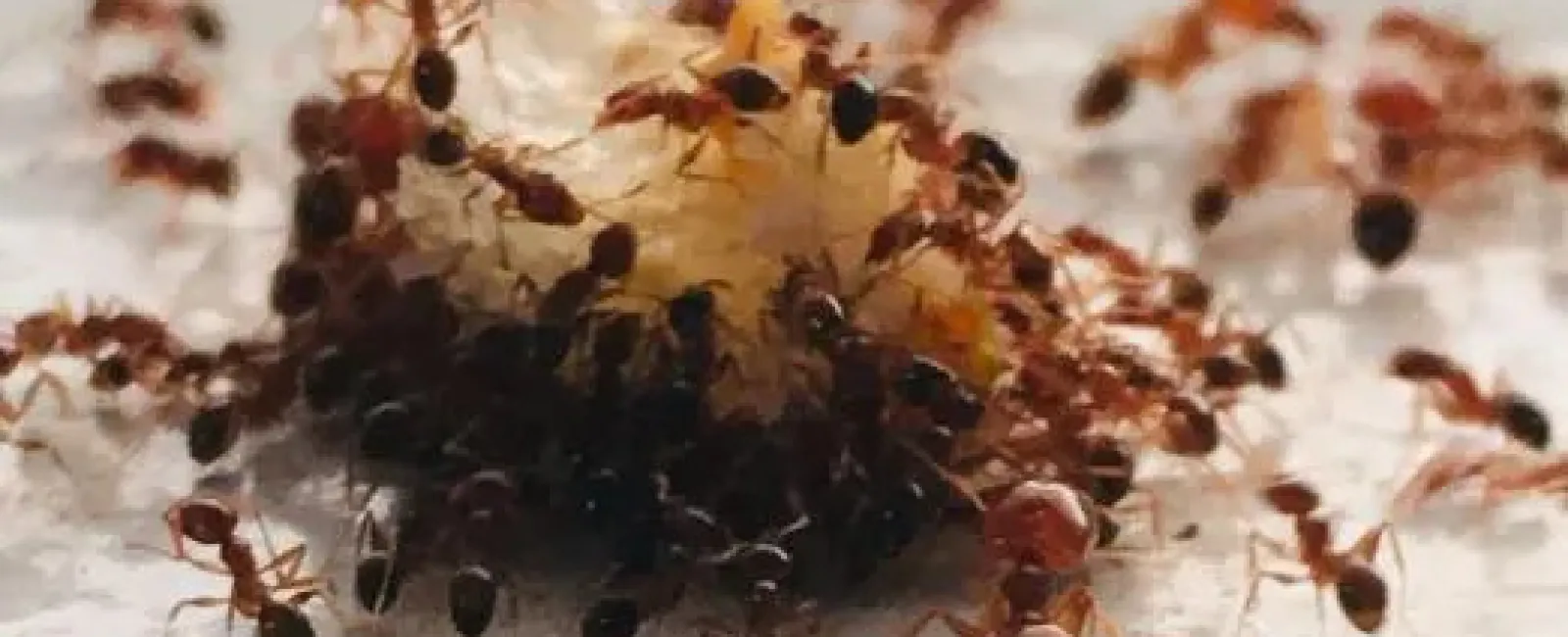Summer is for sunshine, barbecues, and family fun—but unfortunately, it's also prime time for ant invasions. Ants have colonies on almost every continent and can thrive in nearly every environment, so it's no surprise that they manage to find their way into your kitchen every summer.
If you've ever walked into your kitchen on a warm day and seen a trail of ants marching across your countertops, you're not alone. Ants love invading homes. Protecting your property from these nuisances is key.
At Alder Pest Control, we know how frustrating infestations can be, and we're here to help you understand why they happen and, more importantly, how to stop them.
The Annual Ant Invasion
Every summer, countless homes experience the same unwelcome surprise: a sudden surge of ants in the kitchen and pantry. This annual ant invasion is more than just a nuisance—it's a global phenomenon thanks to the amazing adaptability of ants. With over 13,000 known ant species, these tiny insects have colonies on almost every continent and can thrive in a wide range of environments.
As temperatures rise, ants become more active and leave their nests in search of food and water. Kitchens with crumbs, spills, and accessible food are especially attractive to ants.
Understanding what attracts ants and how to prevent an ant infestation is the first step in keeping your home ant-free. In this article, we'll explore the world of ants, what draws them into our homes, and the best ways to stop them from taking over your kitchen.
Inside the Ant World: Colonies and Scout Ants
Ants are social insects that live in organized colonies that can range from a few dozen to thousands of individuals. These worker ants are responsible for foraging, caring for the young, and maintaining the nest. In homes, some of the most common ant species you'll encounter are odorous house ants, carpenter ants, and pavement ants. These ants are attracted to even the smallest food sources—crumbs on the kitchen bench or sticky spills on the floor.
The first ants you see in your kitchen are often scout ants whose job is to search for food and water. When a scout ant finds a food source, it leaves a scent trail back to the nest and signals other ants to follow. This chemical communication can quickly escalate a minor problem into a full-blown ant infestation as more and more ants are attracted to the food and reinforce the trail with their own scent. That's why it's so important to address even a single ant sighting before the rest of the colony joins in.
4 Reasons Why Ants Love Your Kitchen in the Summer
1. They're Searching for Food
Ants are constantly foraging, and when it comes to food, your kitchen is ant heaven. In the summer, ant activity spikes because of the warmer temperatures, which signal ants to increase their scavenging. Even a few crumbs, a sticky spill, or an uncovered trash bin can attract a whole colony. Ants will eat any accessible food, no matter the size.
2. They're Looking For Water
Just like humans, ants need water to survive. Kitchens are often full of damp spots—under the sink, around leaky faucets, or near pet bowls—that make ideal hydration stations for ants.
3. Easy Access Through Cracks and Gaps
Summer weather causes homes to expand and shift slightly, which can open up tiny cracks around windows, doors, and foundations. Ants enter through these cracks and gaps, often finding their way under slabs, through floorboards, and other small openings. These are perfect entryways for ants on the hunt for food and shelter.
4. They're Following a Scent Trail
Once an ant finds a food source, it leaves a scent trail for others to follow by laying a chemical trail, also known as an ant trail. The process of laying these chemical markers is crucial for coordinating the movement of the colony as individual ants lay pheromones to guide others directly to the food. That trail can quickly lead to an army of ants unless you stop them early.
6 Ways to Keep Ants Out of Your Kitchen
1. Clean Up Quickly
Wipe down counters, sweep floors, and don't leave out dirty dishes. Make sure to clean up crumbs and spills, especially anything sugary. Consistent cleaning is necessary to keep ants from returning. Keep your pantry sealed tight and store food in airtight containers.
2. Take Out the Trash Regularly
Garbage is one of the biggest ant magnets. Take out trash daily during peak ant season and clean the bin often to eliminate residue and odors.
3. Seal Entry Points
Inspect your kitchen and home for small cracks or holes in walls, window frames, and baseboards. Seal these with caulk to block common entryways. Failing to seal these entry points can allow ants to nest inside walls or foundations, potentially leading to structural damage to your home.
4. Fix Leaks and Eliminate Moisture
Check under sinks and around appliances for leaks or standing water. Repair any plumbing issues promptly and use a dehumidifier if necessary.
5. Use Natural Repellents
Ingredients such as vinegar, lemon juice, cinnamon, and peppermint oil can disrupt ant trails and deter them from entering. While natural remedies can be safe for both pets and humans, some severe infestations may require professional pest control services.
6. Call in the Professionals
Sometimes, no matter how hard you try, ants just keep coming. That's when it's time to call Alder Pest Control. Our expert technicians can find the source of the problem and apply safe, targeted treatments to keep your home ant-free all season long.
Professional pest control can also address other common household pests like roaches, fire ants, spiders, and more. Ongoing maintenance helps prevent infestations of various pests, so your home stays protected from household pests year-round.
Don't Let Ants Ruin Your Summer
Ants may be persistent, but with the right prevention strategies and professional help, you can reclaim your kitchen. To effectively destroy ant infestations, you need to target entire ant colonies and eliminate the queen ant, as this prevents the colony from returning. At Alder, our exterminators can identify the ant species and ensure you receive the most effective treatment.
Whether you're dealing with a few stray scouts or a full-blown infestation, Alder Pest Control is here to help protect your home and your peace of mind.


